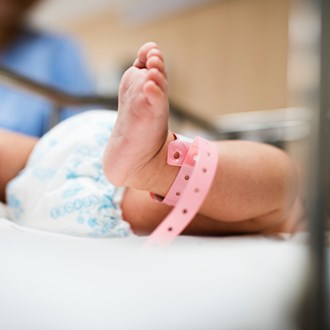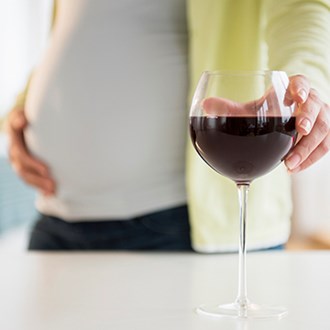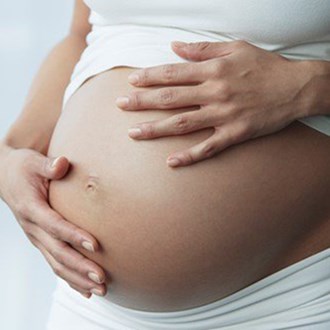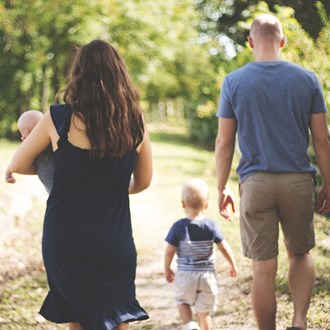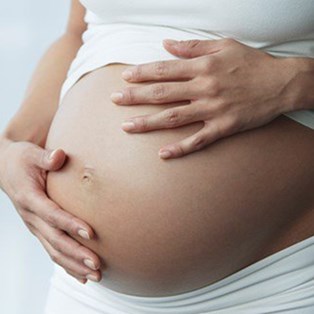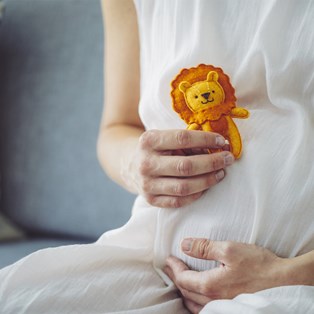Safe skincare during pregnancy
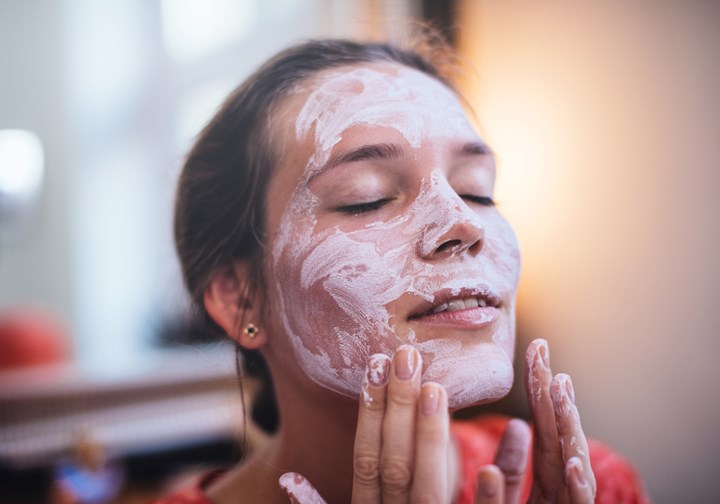
Read on for our expert’s opinion
By Livia Gamble
April 05 2023
This is a topic close to my heart and before I go any further, can I declare up front my conflict of interest: two years ago my husband and I started an anti- ageing skincare company. We formulate and manufacture the only evidence-based skincare products (in this country, at any rate). And, because pregnancy is another topic very close to my heart, as PP readers well know, I have done a stack of research into whether the two mix.
The good news is, on the whole, the stuff you stick on your face is very safe in pregnancy.
Your skin during pregnancy
A whole load of extra hormones will do a range of things to your skin. Some women find their skin is healthier and shinier, thicker and more glowing. Lucky you. For others, they get infuriating and unexpected acne break-outs, rosacea, pigmentation or all of the above. Not so much fun. So if your skin is getting you down, we have many options:
Cleansing your skin
No matter what is happening, you still need to cleanse your skin, and all products are safe in pregnancy. This includes alpha and beta hydroxy acids (salicylic acid is a beta hydroxy acid), as well as fruit acids also known as glycolic acids.
I always suggest using a soap-free cleanser on any skin, and pregnancy is no different.
Hydrating your skin
Moisturising your skin is always important, even if you have break-outs. A good quality moisturiser is essential at night but if you’re getting acne, opt for the oil free or ‘non comedogenic’ moisturisers.
Anti-ageing your skin
My favourite anti-ageing product that is found in a very small number of moisturisers is retinol, which is a derivative of vitamin A. We know oral vitamin A (the main ingredient in anti-acne medications) is teratogenic and can harm your baby. The topical application is less clear but because a shadow hangs over its effects in pregnancy, we suggest you steer clear of any retinoids in your skincare until you have finished breastfeeding. This includes the less effective ones like retinol.
De-pimpling your skin
Acne in pregnancy remains a mystery. We know it’s hormonal but not why some women get it and others don’t. Regardless, you’ll be wanting to nix those zits. Go for a cleanser with beta hydroxy or glycolic acids.
You can use most topical preparations including benzoyl peroxide or topical antibiotics, but nothing with retinoids and no antibiotic tablets. Any doubts? Chat to your GP or pharmacist.
Protecting your skin from the sun
This is absolutely essential, especially if you get melasma, which leads to pigmentation. Most women find their skin is more sensitive in pregnancy, including to sunburn, so start with a good quality sunscreen and top up before you go into the sun. General consensus is that all sunscreens are safe to use in pregnancy. Wear a hat between the hours of 11am and 2pm and try sticking to the shade if possible. If you are sporty or work outdoors, carry your sunscreen with you and regularly reapply.
Lots of women don’t realise that the rays that cause pigmentation and ageing are the UVA rays. The SPF of a sunscreen refers to the multiple of time you can spend in the sun without burning, which is a reference to the UVB rays only. So while high SPF sunscreens may well have UVA protection as well, there’s no guarantee. Look for a broad spectrum sunscreen with UVA protection as well. At the moment in Australia there is no measure of UVA protection required in a sunscreen.
Cosmetic treatments in pregnancy
A US study looked at botox in pregnancy. It found that botox seems to be very safe with no increased risk for mum or baby. However, the numbers we are talking about in this study are tiny and most doctors err on the side of caution and suggest holding off until after baby is born, just in case.
The same goes for chemical peels. Chances are they’re fine but we have even less data on peels than botox and doctors suggest you hang tight till after the birth. Plus, chemical peels and microdermabrasion alike can irritate your skin, especially in pregnancy. The main reason is your skin can be more sensitive and therefore you can end up with an excessive reaction.
So, wait until bub is born before heading in for those extra beauty treatments to make up for lost time.
On a final note, laser resurfacing is generally thought to be very safe in pregnancy.
Related tags
skincare /

